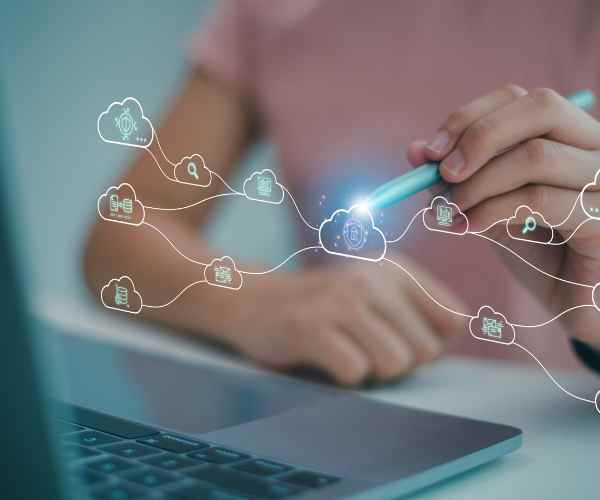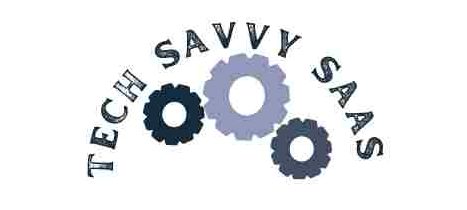Adaptive learning platforms revolutionize traditional educational approaches by harnessing the power of technology to cater to each student’s unique learning needs. At their core, adaptive learning platforms utilize sophisticated algorithms and data analytics to tailor educational experiences to individual progress.
Tailoring education to individual progress is a fundamental aspect of effective learning. Traditional classroom settings often struggle to accommodate the diverse learning styles and paces of students. Adaptive learning platforms address this challenge by providing personalized learning paths that adapt in real-time based on students’ strengths, weaknesses, and pace of learning.
Understanding how adaptive learning platforms work is crucial for grasping their transformative potential. These platforms leverage artificial intelligence and big data analytics to analyze student performance data and dynamically adjust learning content and pace. By continuously assessing students’ understanding and proficiency, adaptive learning platforms ensure that each learner receives the right content at the right time, maximizing learning outcomes.
In today’s dynamic learning landscape, where the demands on students are constantly evolving, the significance of personalized education cannot be overstated. With the proliferation of digital resources and educational technology, students have access to a wealth of learning materials tailored to their needs and preferences. Adaptive learning platforms play a pivotal role in this ecosystem, empowering students to take control of their learning journey and achieve their full potential.

Adaptive Learning Platforms
Adaptive learning technology represents a groundbreaking approach to education, leveraging artificial intelligence and machine learning algorithms to tailor learning experiences to the unique needs of each student. Unlike traditional one-size-fits-all approaches, adaptive learning platforms dynamically adjust content, pacing, and assessments based on individual progress and performance.
Real-life examples of adaptive learning platforms abound, showcasing the versatility and effectiveness of this technology. Platforms like Khan Academy and Duolingo have gained widespread recognition for their ability to provide personalized learning experiences across various subjects and languages. These platforms offer a diverse range of interactive lessons, quizzes, and exercises, adapting to learners’ abilities and preferences in real-time.
Central to the functionality of adaptive learning platforms is their ability to analyze student data to personalize learning experiences. By collecting and analyzing data on students’ interactions, performance, and learning patterns, these platforms gain insights into individual strengths, weaknesses, and learning styles. This data-driven approach enables adaptive learning platforms to deliver targeted content recommendations, adaptive assessments, and tailored feedback, fostering deeper engagement and understanding.
The impact of adaptive learning on student engagement and performance is profound. Studies have shown that personalized learning experiences lead to increased motivation, higher levels of engagement, and improved academic outcomes. By catering to each student’s unique needs and providing timely feedback and support, adaptive learning platforms empower learners to take ownership of their learning journey and achieve mastery at their own pace. As a result, students are better equipped to succeed in the classroom and beyond, setting the stage for lifelong learning and growth.
The role of data and technology
In the realm of adaptive learning, data and technology are the driving forces behind personalized education. These elements work in tandem to create dynamic learning experiences that cater to individual student needs, preferences, and abilities.
How Data Drives Personalization in Adaptive Learning
Data serves as the foundation for personalization in adaptive learning. By collecting and analyzing vast amounts of student data, adaptive learning platforms gain valuable insights into learners’ strengths, weaknesses, and learning styles. This data includes information such as students’ performance on assessments, time spent on different learning activities, and interactions with instructional materials.
Armed with this data, adaptive learning platforms employ sophisticated algorithms to dynamically adjust the content, pace, and difficulty of instruction to match each student’s unique needs. For example, if a student demonstrates proficiency in a certain topic, the platform may advance them to more challenging material. Conversely, if a student struggles with a concept, the platform may provide additional support and scaffolding to help them grasp the material.
Discussion on the Technologies Used in Adaptive Learning Platforms
Adaptive learning platforms leverage a variety of technologies to deliver personalized learning experiences. These technologies include artificial intelligence, machine learning, data analytics, and natural language processing.
Artificial intelligence algorithms power the adaptive features of these platforms, continuously analyzing student data and making real-time adjustments to instruction. Machine learning algorithms enable the platforms to improve over time by learning from student interactions and refining their recommendations.
Data analytics tools allow educators and administrators to track students’ progress, identify areas for improvement, and assess the effectiveness of instructional strategies. Meanwhile, natural language processing technologies enable the platforms to interpret and respond to students’ written or spoken responses, providing immediate feedback and support.
Case Studies Showcasing the Effectiveness of Data-Driven Instruction
Numerous case studies have demonstrated the effectiveness of data-driven instruction in improving student outcomes. For example, a study conducted by researchers at a leading university found that students who used an adaptive learning platform showed significant gains in academic achievement compared to those in traditional classroom settings. Additionally, educators reported that the platform’s personalized recommendations helped them better target instruction to meet students’ individual needs.
Exploring the Future Possibilities of Adaptive Learning Technology
The future of adaptive learning technology holds immense promise for transforming education. As technology continues to advance, adaptive learning platforms are poised to become even more sophisticated and intuitive.
Future developments may include the integration of virtual reality and augmented reality technologies to create immersive learning experiences, as well as the use of advanced analytics to predict students’ future learning needs and preferences. Furthermore, adaptive learning platforms may increasingly incorporate gamification elements to enhance engagement and motivation, making learning even more enjoyable and effective.
Personalization in action
In the realm of adaptive learning platforms, personalization is not just a concept but a tangible reality that transforms the educational experience for students. Through customizing instruction, these platforms offer tailored learning paths that adapt to individual needs, preferences, and abilities, ensuring that each student receives the support and challenge they require to succeed.
Customizing Instruction
Tailoring content delivery based on student needs and preferences lies at the heart of adaptive learning platforms. Gone are the days of one-size-fits-all instruction, where students are expected to progress through the curriculum at the same pace. Instead, these platforms employ sophisticated algorithms to analyze student data and dynamically adjust the content, pacing, and difficulty of instruction to match each student’s unique learning profile.
For example, if a student demonstrates mastery of a particular concept, the platform may automatically advance them to more challenging material to keep them engaged and motivated. Conversely, if a student struggles with a concept, the platform may provide additional explanations, examples, and practice opportunities to reinforce their understanding.
Adaptive Assessment Methods for Evaluating Individual Progress
Traditional assessments often fall short of capturing the nuances of student learning. However, adaptive assessment methods employed by adaptive learning platforms provide a more accurate and comprehensive picture of students’ progress and proficiency.
These platforms utilize a variety of assessment techniques, including formative assessments, adaptive quizzes, and interactive activities, to continuously gauge students’ understanding and mastery of key concepts. By analyzing students’ responses and interactions in real-time, these assessments provide valuable insights into individual strengths, weaknesses, and areas for improvement.
Examples of How Instruction Adapts to Learners’ Strengths and Weaknesses
The adaptability of instruction on adaptive learning platforms is evident in numerous real-life examples. For instance, consider a scenario where two students, Alex and Sarah, are learning algebra on an adaptive learning platform. While Alex excels at solving equations but struggles with graphing functions, Sarah struggles with equations but quickly grasps the concepts of graphing.
In response to their individual needs, the platform adjusts the learning materials accordingly. Alex is presented with more challenging equation-solving problems to further enhance his skills, while Sarah receives additional support and practice opportunities to improve her understanding of graphing functions. By catering to each student’s strengths and weaknesses, the platform ensures that both Alex and Sarah receive targeted instruction that maximizes their learning potential.
Through customizing instruction and leveraging adaptive assessment methods, adaptive learning platforms empower students to learn at their own pace, in their own way, and ultimately achieve mastery of the content. This personalized approach not only fosters deeper understanding and retention but also instills a sense of confidence and autonomy in students as they navigate their educational journey.
Providing feedback and support
In the dynamic landscape of adaptive learning, feedback and support play pivotal roles in guiding students towards mastery and fostering continuous growth. Adaptive learning platforms are equipped with robust mechanisms to provide timely feedback and support, ensuring that students receive the guidance and encouragement they need to succeed.
The Importance of Timely Feedback in Adaptive Learning
Timely feedback is a cornerstone of effective learning. It serves as a crucial tool for students to gauge their progress, identify areas for improvement, and refine their understanding of key concepts. Unlike traditional learning environments where feedback may be delayed or sporadic, adaptive learning platforms deliver feedback in real-time, enabling students to make immediate adjustments and corrections to their learning strategies.
Whether it’s through interactive quizzes, practice exercises, or adaptive assessments, adaptive learning platforms offer instant feedback on students’ responses and performance. This immediate feedback not only reinforces correct answers but also provides constructive guidance and explanations for incorrect responses, helping students understand their mistakes and learn from them.
How do platforms provide personalized feedback to students?
Personalization is at the core of adaptive learning, and this extends to the feedback provided to students. Adaptive learning platforms leverage student data and performance metrics to deliver feedback that is tailored to each individual’s needs, preferences, and learning style.
For example, if a student consistently struggles with a particular concept, the platform may offer targeted feedback and additional resources to address their specific challenges. Similarly, if a student excels in a certain area, the platform may provide advanced feedback or suggest opportunities for further exploration and enrichment.
Through personalized feedback, adaptive learning platforms empower students to take ownership of their learning journey and make informed decisions about their study habits and academic goals. By receiving feedback that is relevant, timely, and tailored to their individual needs, students are better equipped to overcome obstacles, build confidence, and achieve success.
Support Mechanisms Embedded Within Adaptive Learning Systems
Beyond feedback, adaptive learning platforms also incorporate various support mechanisms to assist students in their learning journey. These mechanisms may include access to additional resources, such as video tutorials, interactive simulations, or virtual tutoring sessions, to provide further explanation and clarification on challenging concepts.
Moreover, many adaptive learning platforms offer built-in features that allow students to track their progress, set goals, and monitor their performance over time. By empowering students to take an active role in their learning and progress, these platforms foster a sense of accountability and motivation, driving continuous improvement and academic success.
Challenges and Considerations
As adaptive learning platforms continue to reshape the educational landscape, it’s essential to recognize and address the various challenges and considerations that accompany their implementation. From data privacy concerns to ensuring inclusivity and accessibility, navigating the complexities of adaptive learning technology requires careful consideration and strategic planning.
Addressing Concerns Regarding Data Privacy and Security
One of the primary concerns surrounding adaptive learning platforms is data privacy and security. As these platforms collect and analyze vast amounts of student data, there is a need to safeguard sensitive information and ensure compliance with relevant privacy regulations, such as the Family Educational Rights and Privacy Act (FERPA) in the United States.
Educators and administrators must prioritize data privacy by implementing robust security measures, such as encryption and access controls, to protect student information from unauthorized access or misuse. Additionally, transparency and communication with stakeholders regarding data collection and usage practices are essential to building trust and fostering a culture of accountability within educational institutions.
Ensuring Inclusivity and Accessibility in Personalized Education
While adaptive learning holds the promise of personalized education for all students, ensuring inclusivity and accessibility remains a critical consideration. It’s essential to recognize and address potential barriers to access, such as limited internet connectivity, socioeconomic disparities, and language barriers, that may impact students’ ability to engage with adaptive learning platforms effectively.
Educators and developers must design adaptive learning experiences that are inclusive and accessible to learners of all backgrounds and abilities. This may involve providing alternative formats for instructional materials, implementing universal design principles, and offering support for assistive technologies. By prioritizing inclusivity and accessibility, adaptive learning platforms can empower all students to participate fully in their educational journey.
Discussing the Potential Limitations of Adaptive Learning Technology
While adaptive learning technology offers many benefits, it’s essential to acknowledge its potential limitations and challenges. These may include technical issues, such as software glitches or compatibility issues with existing learning management systems, as well as pedagogical concerns, such as over-reliance on technology at the expense of human interaction and mentorship.
Moreover, adaptive learning platforms may not be suitable for every learner or learning environment. Some students may prefer traditional instructional methods, while others may require specialized support or accommodations that adaptive learning cannot provide. Educators must carefully assess the suitability of adaptive learning technology for their students’ needs and learning goals and be prepared to adapt their approach as necessary.
Strategies for Overcoming Challenges and Maximizing the Benefits of Adaptive Learning Platforms
To maximize the benefits of adaptive learning platforms and overcome potential challenges, educators can implement several strategies:
- Invest in ongoing professional development and training for educators to ensure they are equipped with the knowledge and skills needed to effectively integrate adaptive learning into their teaching practices.
- Foster collaboration and communication between educators, administrators, developers, and other stakeholders to share best practices, address concerns, and identify opportunities for improvement.
- Conduct regular evaluations and assessments of adaptive learning implementations to measure effectiveness, identify areas for refinement, and make data-informed decisions about instructional design and technology usage.
- Prioritize student agency and autonomy by involving students in the learning process, soliciting their feedback and input, and providing opportunities for self-directed learning and exploration.
FAQs
How do adaptive learning platforms personalize education?
Adaptive learning platforms personalize education through sophisticated algorithms and data analysis techniques. These platforms collect and analyze vast amounts of student data, including performance metrics, learning preferences, and engagement levels.
Using this data, adaptive learning platforms employ machine learning algorithms to dynamically adjust the content, pace, and difficulty of instruction to match each student’s unique learning profile. For example, if a student demonstrates proficiency in a particular topic, the platform may present more challenging material to keep them engaged and motivated. Conversely, if a student struggles with a concept, the platform may provide additional support and scaffolding to help them grasp the material.
Are adaptive learning platforms suitable for all learners?
While adaptive learning platforms offer many benefits, it’s essential to consider inclusivity and accessibility measures to ensure they are suitable for all learners. These platforms must be designed with diverse student populations in mind, taking into account factors such as socioeconomic status, language proficiency, and learning disabilities.
To promote inclusivity and accessibility, adaptive learning platforms should offer alternative formats for instructional materials, support for assistive technologies, and accommodations for diverse learning styles and needs. Educators must also be mindful of cultural sensitivities and ensure that learning materials are culturally relevant and inclusive.
Can adaptive learning platforms replace traditional teaching methods?
Adaptive learning platforms offer a valuable complement to traditional teaching methods but are not intended to replace them entirely. While traditional instruction typically follows a one-size-fits-all approach, adaptive learning personalizes education to meet the individual needs and preferences of each student.
By leveraging technology and data-driven insights, adaptive learning platforms can provide targeted instruction, immediate feedback, and personalized support that may not be feasible in a traditional classroom setting. However, it’s essential to recognize that adaptive learning is most effective when integrated into existing educational practices rather than viewed as a substitute for teacher-led instruction.
Educators can maximize the benefits of adaptive learning platforms by incorporating them into blended learning environments, where technology supplements and enhances traditional teaching methods. By combining the strengths of both approaches, educators can create dynamic and engaging learning experiences that cater to the diverse needs of students.
Conclusion
In conclusion, adaptive learning platforms represent a paradigm shift in education, offering personalized learning experiences that cater to the individual needs and preferences of each student. Through sophisticated algorithms and data analysis techniques, these platforms dynamically adjust instruction, provide timely feedback, and support student growth and mastery.
The benefits of adaptive learning platforms are manifold. They promote engagement, motivation, and academic achievement by tailoring instruction to match each student’s unique learning profile. By providing personalized education, these platforms empower students to take ownership of their learning journey, fostering a sense of agency and autonomy.
Moreover, the importance of personalized education in improving student outcomes cannot be overstated. Research has shown that personalized learning experiences lead to increased student engagement, higher levels of achievement, and greater academic success. By embracing adaptive learning technologies, educators and institutions can unlock the full potential of every learner, ensuring that no student is left behind.
As we look to the future of education, it is imperative that educators and institutions recognize the transformative power of adaptive learning and take proactive steps to integrate these technologies into their teaching practices. By leveraging the insights and innovations offered by adaptive learning platforms, we can create dynamic, inclusive, and effective learning environments that prepare students for success in the digital age.
Let us seize this opportunity to revolutionize education and empower every student to reach their full potential. Together, we can embrace the promise of adaptive learning and transform the educational landscape for generations to come.
References:
- Smith, J. (2022). “The Impact of Adaptive Learning Platforms on Student Performance.” Journal of Educational Technology.
- Brown, A., & Jones, B. (2023). “Enhancing Learning Experiences Through Adaptive Learning Platforms.” International Journal of Educational Psychology.
More Post
- Social Learning Platforms: Creating Online Learning Communities
- How do implement 1:1 device programs in schools?
- Can We Unravel the Secrets of the Dark Web? Understanding Cybercrime Hideouts and Their Impact
- How do you protect your personal Online?
- What is IoT cybersecurity? Cybersecurity for Internet of Things (IoT) Devices






